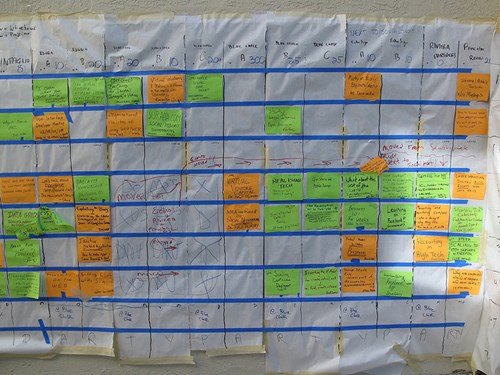

One of the biggest hurdles that students face when preparing to take the USMLE Step 1 exam is choosing an effective study routine. Wouldn’t it be nice if everyone had 6 months of uninterrupted time they could dedicate exclusively to studying? Sure, but unless you’re one of a handful of test-preppers fortunate enough to have that much time on your hands, you’ll probably be juggling studying with other responsibilities. And that’s okay, because everyone else is dealing with the same time crunch. It’s learning how to best budget your time that can help maximize your studying efficiency.
Everyone learns differently—Qbanks, courses, textbook—so it’s important to pick a routine that works best for you. Consider this question: When studying for any other test, do you find yourself going over things slowly and methodically over a long period of time, or are you more likely to “cram” for it in the days to weeks beforehand?
If you generally start your test prep well in advance, it might be a good idea to budget up to 6 months to studying for Step 1. This isn’t to say that you’ll be knee-deep in books and Qbank tests for 8 hours a day that entire time, but setting aside a couple of hours a day for reading and Qbanking is a great way to familiarize yourself with the material. Then, when you reach the 6-week point, it’s time to step things up and increase the length of those Qbank tests (Pastest USMLE's 'Test Mode' makes this easy for you) doing more than one at a time. At this point, maybe aim for something like 3–4 hours of studying per day.
If you’re more likely to cram for tests, it’s still a good idea to start thinking about Step 1 about 3–4 months in advance. Just like you wouldn’t be able to complete a marathon with only a few weeks of training, neither can you expect to excel on Step 1 if you don’t put in a decent amount of study time. You can plan on reading and answering shorter blocks of questions (start with 10–15, then move up to 20–25 and eventually do complete 46-question blocks) for about 3 hours a day for the first 2 months, and then it’s time to increase your time commitment for that final month. Shoot for 4–5 hours a day if you can!
Having said all this, it might not be possible to study full time, and that’s okay. You can still find time to study for 2–3 hours a day, working your way through Qbanks and review materials. Just make sure you’ve done enough full-length (46-question) blocks that you won’t be fatigued when the time comes for the real test.
Come up with a schedule that works for you. Even though I recommend at least 3 months of study time, that might still seem like too much, and you may find you can get it all done in 2. It’s a very individualized process, and you know yourself best. Come up with a routine you can stick to. When it comes to structuring your study days, make sure you get a nice mix of difficult and dense material, along with lighter, easier material. This can help prevent mental fatigue that just results in frustration. I recommend drawing up a calendar with study topics, time allocation, and Qbank goals, to help you stay on track.
Realize that the USMLE Step 1 test is an endurance test—322 multiple choice questions divided into 7 blocks over about 8 hours—so you should study as if you preparing for a marathon. If you can only squeeze in time to read over a single chapter and take a 20-question test from a Qbank, then by all means, do it, but realize that you’ll have to work yourself up to more questions, building your endurance, so to speak. Otherwise, you may be in for a shock when you start crashing around block 4 on test day!
Everyone here at Pastest is dedicated to helping you succeed on test day. I think the most important advice I can offer is to set your expectations at a realistic level so that you can best achieve them. An effective and realistic study routine is a great start to succeeding at Step 1.
Image source: Peter Kaminski, CC, via Flickr
- 01 Apr 2014
- USMLE
